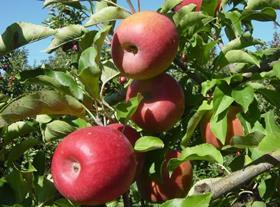
A fruit sector fund to promote the position of entrepreneurs has been launched in South Africa. The Hortfin Fund, negotiated between the deciduous fruit industry organisation Hortgro, financial institution the Jobs Fund and South African Land Bank, aims to address a common dilemma for many South African agripreneurs about where to find funding to become fully-fledged commercial entities.
“Now, the South African deciduous fruit industry, the Jobs Fund and Land Bank are proud to announce the first ever blended finance scheme for people/entities who want to enter or expand their businesses in the fruit and wine industries; and which are at least 51 per cent black-owned entities,” Hortgro said in a statement.
According to Hortgro, blended finance is the strategic use of development finance for the mobilisation of additional finance towards sustainable development.
“Hortfin is a ring-fenced loan facility directed at the South African fruit industry value chain and will provide an innovative and comprehensive financial support system in a sustainable manner that promotes job creation and transformation,” the organisation explained. “Hortfin is a modern approach to funding with partners using their expertise in a complementary way.”
Hortgro says the fund R600m (€36.5m) debt fund is directed at the fruit and wine industry value chains and is positioned to provide innovative and comprehensive financing and support systems in a manner that promotes job creation, transformation, and sustainability.
“The Land Bank is a key role player and financier and will be responsible for managing the loan book,” the Hortgro statement read. “The Jobs Fund provides grant funding and has a key monitoring role over the initial years. Participants in the broader fruit industry are expected to play an important role in identifying opportunities, forming joint ventures and generally providing support to the investee companies.”
The fund is primarily targeted at what Hortgro calls agripreneurs from previously excluded groups in South Africa and previously disadvantaged individuals. There are strict criteria which includes that the business must be able to repay the loans and the participants must consent to appropriate mentoring, capacity building, implementation of financial and administation systems and regular monitoring and evaluation audits.
Within the three-year implementation period, the business must also be able to create sustainable jobs valued at approximately R300,000 (€18,288) per job, and provide an undertaking to achieve at least 51 per cent black ownership. A majority of the turnover must also come from the South African deciduous fruit value chain, including topfruit and stonefruit, as well as table and wine grapes.
The administrators of the fund say they anticipate that around 60 per cent of funding will be targeted at primary agricultural players, with 40 per cent focused on value chain growth.



